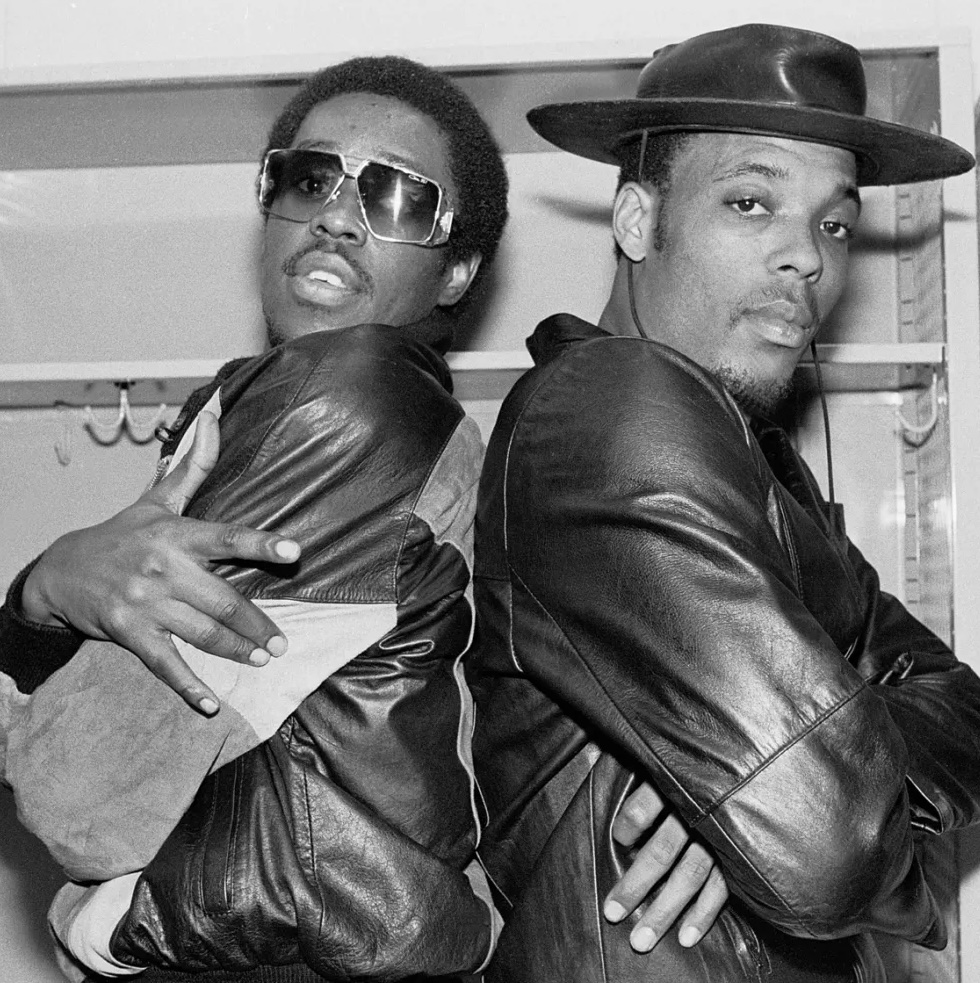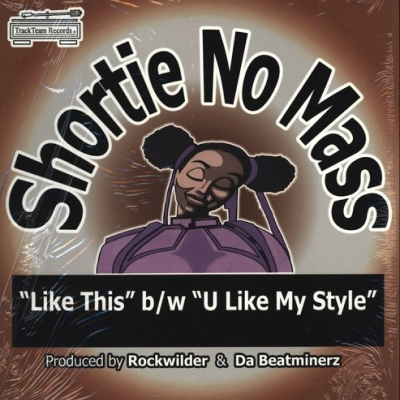In the short term, hip-hop in the year 2023 will largely be remembered as one in which the culture experienced an existential crisis. These discussions were partly prompted by the innumerable #HipHop50 celebrations that led young and old fans (mostly older, it seemed) to wonder if the music and art of today can compare to its vaunted past. But they also worried that their cultural impact had lessened. When the Grammy Awards announced its nominees for Album of the Year in October, none of the candidates were rap artists. Then there was the widely reported fact that no rap artist topped the Billboard album or singles charts until July — which hadn’t happened in 20 years.
To the genre’s defenders, this discussion doesn’t matter because rap records that excite them continue to appear. I’m not sure if I agree with that sentiment, and not just because I can’t easily dismiss macro/industry machinations in favor of simply enjoying the art. As a working journalist/critic, I spent too much time covering the #HipHop50 parade by contributing to lists and writing stories about sundry rap legends. To be honest, I’m not confident that I listened to enough new rap to take an accurate pulse. (Damnably, this includes Sexxy Red’s Hood’s Hottest Princess.)
That’s one reason why this year’s list of 20 notable hip-hop albums is shorter than last year’s stack of 50 titles. The other is that I think it’s important to make tougher judgements on what truly stands out. Scenes tend to be self-congratulatory, and it’s easy to give out participation trophies to, say, Killer Mike’s Michael and Elzhi & Oh No’s Heavy Vibrato because those artists made great work in the past; or simply mimic some critics and give a laurel to Lil Yachty’s Let’s Start Here. Context is important, too. Does Danny Brown’s Quaranta resonate as deeply as XXX or Atrocity Exhibition? And the less said about creatively exhausted chieftains like Drake, Travis Scott, and Talib Kweli, the better.
As hip-hop culture matures and ages despite its seemingly inherent puerile antics, part of the challenge for longtime listeners will involve trying to assess whether small leaps in evolution can be as satisfying as the giant steps of the past. Yes, I’m still excited about the genre — I wouldn’t be here if I wasn’t. But I want to apply the same rigor I used when, as a teenager, I tried to figure out if De La Soul’s 3 Feet High and Rising was too droll and self-indulgent or, as an adult, I wondered if the Roots’ Illadelph Halflife lacked the innocence and verve of the band’s first album.
A final note: I don’t want to highlight Noname’s Sundial without acknowledging the debate around her track “Balloons” and Jay Electronica’s guest verse, where he toys with ideas that can be classified as antisemitic.
Tension between Black, Muslim, and Jewish communities have persisted in hip-hop culture since the late 80s and the rise of politically informed rap. These fault lines have resulted in too many incidents to chronicle here, including anti-Black racism, Islamophobia, and antisemitism. One can certainly question whether Noname’s decision to include the Jay Electronica verse is justifiable. She has said that she refutes all forms of bigotry but also wants to reflect the kind of philosophical diversity that exists in the Black community. However, one wonders if she could have rebutted or countered his musings within the track to make her personal position clearer. (One famous example, though maybe not the best, of an MC pushing back on another’s verse is LL Cool J vs. Canibus on “4, 3, 2, 1.”) Of course, the ongoing global crisis surrounding Israel’s war with Hamas and invasion of Gaza makes this discussion more fraught.
Rap artists delight in exposing fractures between people of different genders, races, and cultures. Mainstream audiences have both rejoiced at their honesty and recoiled at the bigoted ways in which they can express themselves. It seems that in 2023, music fans that aren’t fully committed to the genre are wondering if they should continue to empathize with Black musicians whose sensibilities and ethics are so different from their own. Noname’s Sundial is a strong and at times revelatory piece of work. Sonically, it’s no Public Enemy’s It Takes a Nation of Millions to Hold Us Back, to reference an earlier masterpiece that was also accused of abusing antisemitic tropes. So why bother to understand where Noname is coming from?
Hip-hop in 2023 may be overburdened by history. But it’s important to get lost in the moment and remember to, as the kids used to say, “take no shorts.” Set aside comparisons. How does today’s music make us feel now?
As per custom, my list below is unranked and in alphabetical order. In some cases, I included excerpts from previously published reviews.
Notable Hip-Hop Albums of 2023
- AJ Suede & Young God, Parthian Shots
- Armand Hammer, We Buy Diabetic Test Strips: “In contrast to their respective solo work, which can be pleasingly intense and knotted with poetically rendered autobiography, Armand Hammer’s albums sound like big parties, indie style.”
- Billy Woods & Kenny Segal, Maps: “Essentially, it serves as a travelogue for a blossoming indie star, compiling the misadventures, curiosities, and indignities he endured while on tour.”
- Black Milk, Everybody Good?
- Danny Brown, Quaranta: “Like post-punk icons Hüsker Du in the 80s, Brown knows how to assemble a compelling project, leaving fans to argue which one is the prettiest of the bunch.”
- Earl Sweatshirt & the Alchemist, Voir Dire
- El Michels Affair & Black Thought, Glorious Game: “Although Black Thought doesn’t stray from the tendencies that distinguish his solo material from his work with The Roots — breathlessly stacking bars without hooks — he sounds more reflective this go-round.”
- Fatboi Sharif & Steel Tipped Dove, Decay: “Fatboi Sharif’s third album, Decay, is arguably his most artistically realized to date.”
- H31R, Headspace
- Ice Spice, Like..?: “If these tracks feel a bit too sympatico, perhaps the result of studio freestyles with a hastily mapped-out hook to tie them together, their raw quality also makes her performances visceral and exciting.”
- JPEGMAFIA & Danny Brown, Scaring the Hoes: “Every track seems to tremble with tweaked-out bass and slurry samples, some more recognizable than others.”
- Kaytraminé, Kaytraminé
- Larry June & the Alchemist, The Great Escape: “His languid, deep-voiced flow draws out the narcotic qualities inherent in The Alchemist’s production style, making The Great Escape sound like the equivalent of a 70s soft-rock jam.”
- Maxo, Even God Has a Since of Humor: “The Southern California rapper tends to linger when he flows, and he often punctuates his lines with a wry drawl.”
- MIKE, Burning Desire: “As MIKE raps, ‘I’m Michael Myers with the dreads,’ he invokes the best aspects of his persona: A hungry striver full of Brooklyn swagger, trembling from the city’s elements and overeager to share his troubles.”
- Navy Blue, Ways of Knowing
- Noname, Sundial
- Open Mike Eagle, Another Triumph of Ghetto Engineering
- Skech185 x Jeff Markey, He Left Nothing for the Swim Back: “He raps like he’s slamming dominoes on the table.”
- Veeze, Ganger: “The Detroit rapper spins his bars in a muddy whisper that’s by turns intoxicating and maddening, forcing you to listen closely to his riffs on familiar themes of pleasure and power.”
Featured photo of Noname by Mahaneela.
Humthrush.com will always be free to read and enjoy. If you like my work, leave a tip at Ko-fi.com/humthrush.


